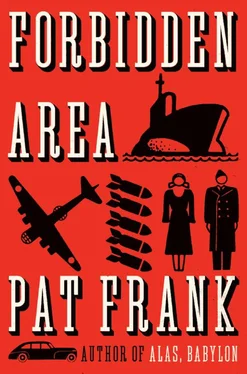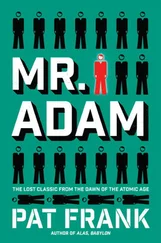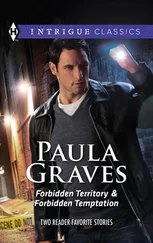THERE IS no lonelier stretch of beach on the Atlantic than the twenty miles between Ponte Vedra and St. Augustine, in northern Florida. A few hundred feet inland Highway AIA parallels the surf, but the coquina road is narrow, pocked, and avoided by wary tourists. It is no scenic drive. High dunes wall the highway from the sea, and where there are no dunes the ocean is curtained by cabbage palms and stunted magnolias fighting for root space in dense palmetto thickets. On a June night in the full of the moon this beach was inhabited only by a boy and a girl lying on a blanket in a white, spoon-shaped hollow between two dunes.
Henry Hazen and Nina Pope, both high school seniors from St. Augustine, had been there before. They called it “our place,” and used it for immature love-making, and confidences, and for dreaming. They did not consider their dreams unreasonable. Nina wanted to go to New York and get a job as a secretary, either to some big business executive or a Broadway producer. She would have her own apartment with full-length mirrors, a built-in dressing table, and a stall shower with sliding glass doors. Henry wanted to be a researcher, or anyway an engineer, for some big electronics company. He would like to find this job in Miami, although he would fly to New York to see Nina, weekends. When he became chief of research, or owned his own company, or invented something really big, like radar, she would give up her job and they would get married. They would live in one of those new Miami houses where when you woke up you pressed a button, the bedroom wall opened, and you rolled out of bed into your own private swimming pool. All this might have to wait a few years. She didn’t know how to type, as yet, and he had just signed up in the Marines.
Just south of their hideaway an unmarked road, simply twin ruts packed with oyster shell, twisted through the dunes from AIA to high-water mark. Since this road was used, on occasion, by the beach buggies of fishermen after red bass, Henry refrained from turning in and blocking it. If he and Nina were seen and recognized, word of it might get back to Nina’s father, a dark, brooding, violent man, and a deputy sheriff. Instead, Henry eased his car into a palm-shrouded pocket off the shoulder of the highway. Then, carrying blanket and swim suits, they climbed across the dunes to the seclusion of their hollow. His caution, or timidity, undoubtedly saved their lives.
This was likely their last date for a long time, and yet their talk faltered. They were a little sad, and a little frightened, for closing a chapter of youth is a small death, with all the chapters-to-come an uncertain hereafter. On Monday Nina would start a secretarial training course at the St. Augustine business school, and on Tuesday Henry would leave for a training camp in the Carolinas. So they swam for a time in the dark waters beyond the breakers and then walked the beach hand in hand until the soft south wind dried them. They returned to the intimacy of their hollow and lay on the blanket, faces to the stars, shoulders touching but thoughts already diverging ahead. Henry raised himself on his arm, thin and knobby as a bamboo pole, and looked down on her face. Nina was a frail girl, small-boned and slender, patches of freckles on her nose and shoulders. Their classmates thought her mousy. Henry thought her beautiful. He leaned over and kissed her and she responded for a moment, her body arching to meet his. Then she pushed him away. “It’s late,” she said. “We’ve got to go. Turn your back while I dress.”
He wanted to protest. He wanted to say that this would be their last chance for a long time. But he saw that she was gone from him, her mind on something else entirely. He rose to his feet and turned his face to the sea.
“Now don’t look,” she said.
“You’ll never get hurt by a look,” Henry said. Nevertheless he did not look. It was their ritual.
Soon she said, “Okay, you can look now.”
He didn’t turn or answer. He was witness to an astonishing sight. Where there had been only water before, there was now a black hump in the sea. It lay less than a mile offshore, solid as a reef.
“What’s the matter?” Nina asked.
“We’ve got a visitor,” he said, and pointed.
She stepped beyond him up the slope of their hollow until she could see over the rim. “Where did it come from?” she asked.
“I don’t know. All of a sudden it was just there.” He felt uneasy. He didn’t want to say that it had popped straight up out of the sea, but now that he thought of it, that’s what must have happened.
“Maybe it’s a whale,” she said. “A dead whale.”
“I don’t think so,” Henry said. “It’s too high out of the water to be a dead whale. Anyway, I think it’s bigger than a whale. Must be a ship, but it’s a funny-lookin’ ship. No masts, no lights.”
“It could be an oiler,” she said. “I’ve seen oilers in the carrier base at Mayport. It could be an oiler in distress.”
“No it couldn’t,” Henry said. “If it was an oiler broke down or something, there’d be a lot of Navy out there with it. Now it could be a menhaden boat that lost its masts in a storm, except there hasn’t been any storm. It looks more like a big ship, capsized.” He hesitated a moment and then added, “Or a submarine.”
So gradually that for a moment Henry thought his eyes were wrong, the black blob on the silvered sea began to change shape. It looked as if it were splitting apart, like an amoeba under the microscope in biology class. Then there was no doubt of it. A small part did detach itself from the larger mass. At first the small part seemed to be drifting, but then it assumed purpose and direction, narrowed, and moved towards shore, its speed increasing until it created a thin, phosphorescent bow wave. Soon it was so close that they could hear the muffled throb of its engine.
Henry had heard stories of dope and Orientals being smuggled in from Cuba, and he was certain that this was what they were witnessing. He pulled on his trousers over his swim trunks, slipped on his shirt without bothering to button it, and his shoes without tying the laces. He took his wrist watch from his trousers pocket and noted the time as he strapped it on. It was 12:15. He said, “Nina, we’d better get out of here right now.”
She put her hand on his arm and said, “Why? This is exciting. Let’s watch.”
He wanted overwhelmingly to attain the security of the car, or at least retreat to the top of the dunes. From the top of the dunes they could watch and then run for it. But he’d feel silly if it turned out that the big boat was just a disabled fisherman and the small one a boatload of men who needed help. He contained his fear, in the greater fear that Nina would think him yellow.
When the boat was inshore of the breakers he recognized its shoe-box shape. It was a landing craft such as the Marines used. It grated on the sand, broached, straightened, and lunged to a stop, its stern still rising and falling to the surge of the surf. So shallow was its draught that its ramp dropped into only a few inches of water.
Men started coming out of the bow, trotting down the ramp, ten or twelve of them, all carrying weapons, sub-machine guns strapped to their shoulders. They fanned out along the beach like fingers of a fist suddenly unclenched. They deployed in a purposeful manner, and then advanced on the dunes in a skirmish line like soldiers. One headed directly for their hollow, as if he knew they were there. It was too late to run for it now, not with the sand so white and the moon so brilliant.
Читать дальше













